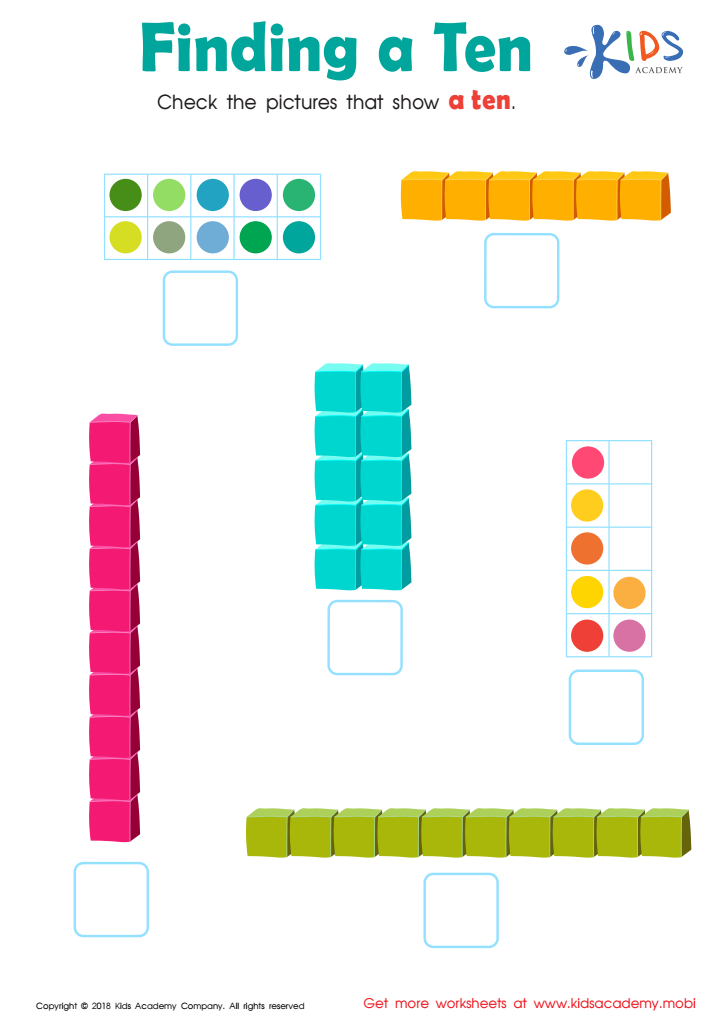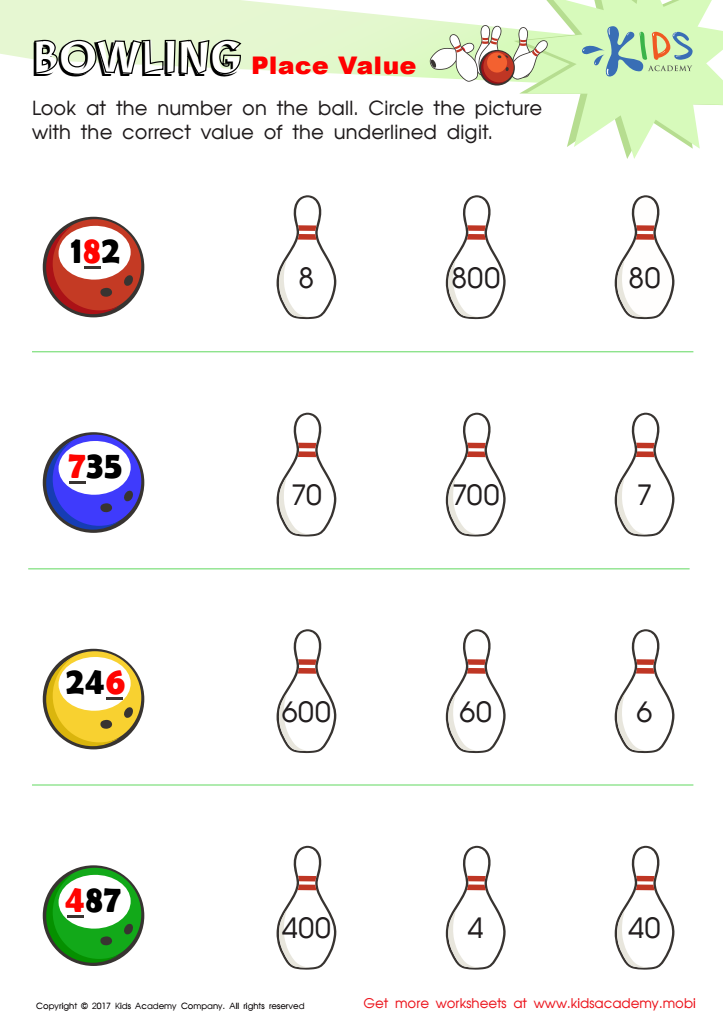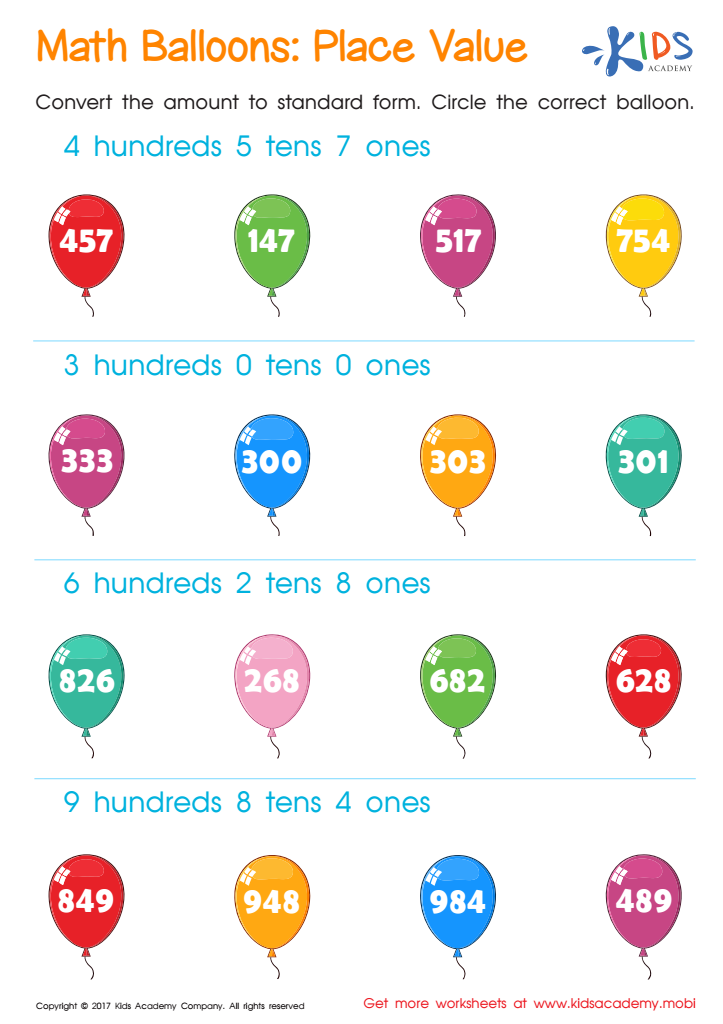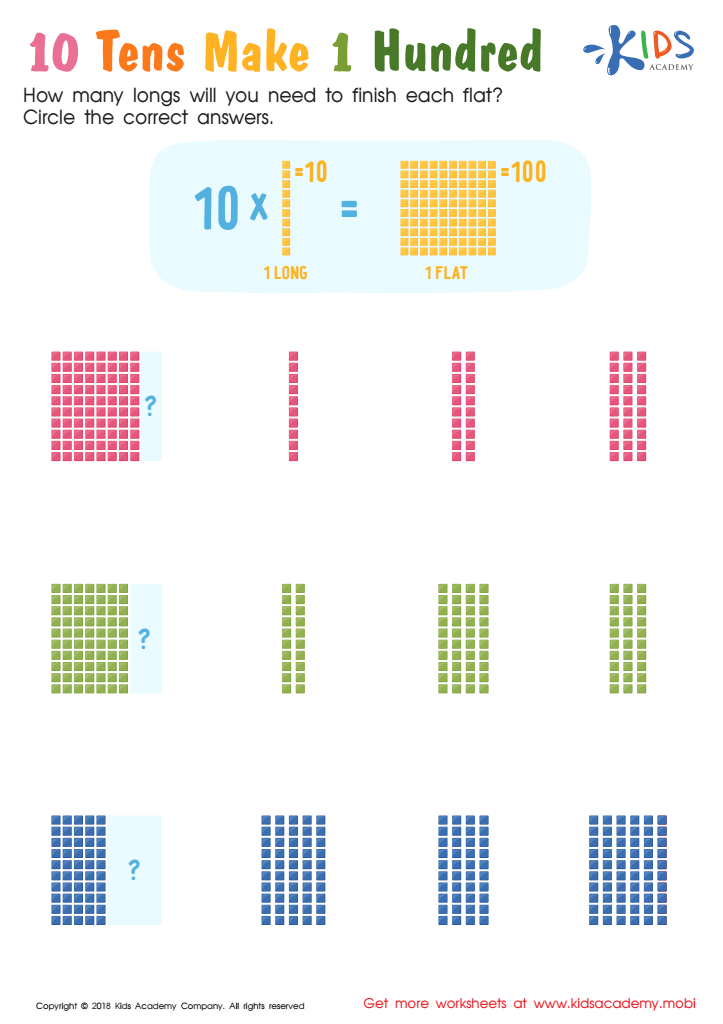Recognizing number patterns Normal Math Worksheets for 7-Year-Olds
4 filtered results
-
From - To
Enhance your 7-year-old's math skills with our engaging "Recognizing Number Patterns" worksheets! Designed to make learning enjoyable, these normal math worksheets help young learners identify, analyze, and extend numerical sequences, fostering critical thinking. Children will explore various patterns—both ascending and descending—using fun, interactive exercises. These worksheets cater to different learning styles, ensuring every child can grasp fundamental math concepts while boosting their confidence. Perfect for homeschooling or classroom use, our resources align with educational standards, paving the way for future math success. Watch your child's understanding flourish as they dive into the world of number patterns today!


Finding a Ten Worksheet


Place Value Worksheet


Place Value Printable Worksheet


10 Tens Make 1 Hundred Worksheet
Recognizing number patterns is a fundamental skill that plays a crucial role in a child's mathematical development, particularly for 7-year-olds who are beginning to engage with more complex math concepts. Parents and teachers should care about fostering this skill for several reasons.
Firstly, number patterns help children understand the relationship between numbers, making it easier for them to perform operations like addition and subtraction. By recognizing patterns, children develop a stronger number sense, which supports their overall mathematical reasoning.
Additionally, understanding patterns lays the groundwork for future math topics such as multiplication, division, fractions, and algebra. It enhances logical thinking and problem-solving skills, empowering children to tackle math challenges with confidence.
Moreover, recognizing number patterns can boost children's engagement and enthusiasm for math by making learning more interactive and enjoyable. Activities that involve patterns can include games and real-life applications that spark curiosity and exploration.
Ultimately, by emphasizing the importance of number patterns, parents and teachers can support children in building a solid foundation for their mathematical journey, promoting success not just in math, but in critical thinking and analytical skills essential for their overall academic growth.
 Assign to My Students
Assign to My Students




















